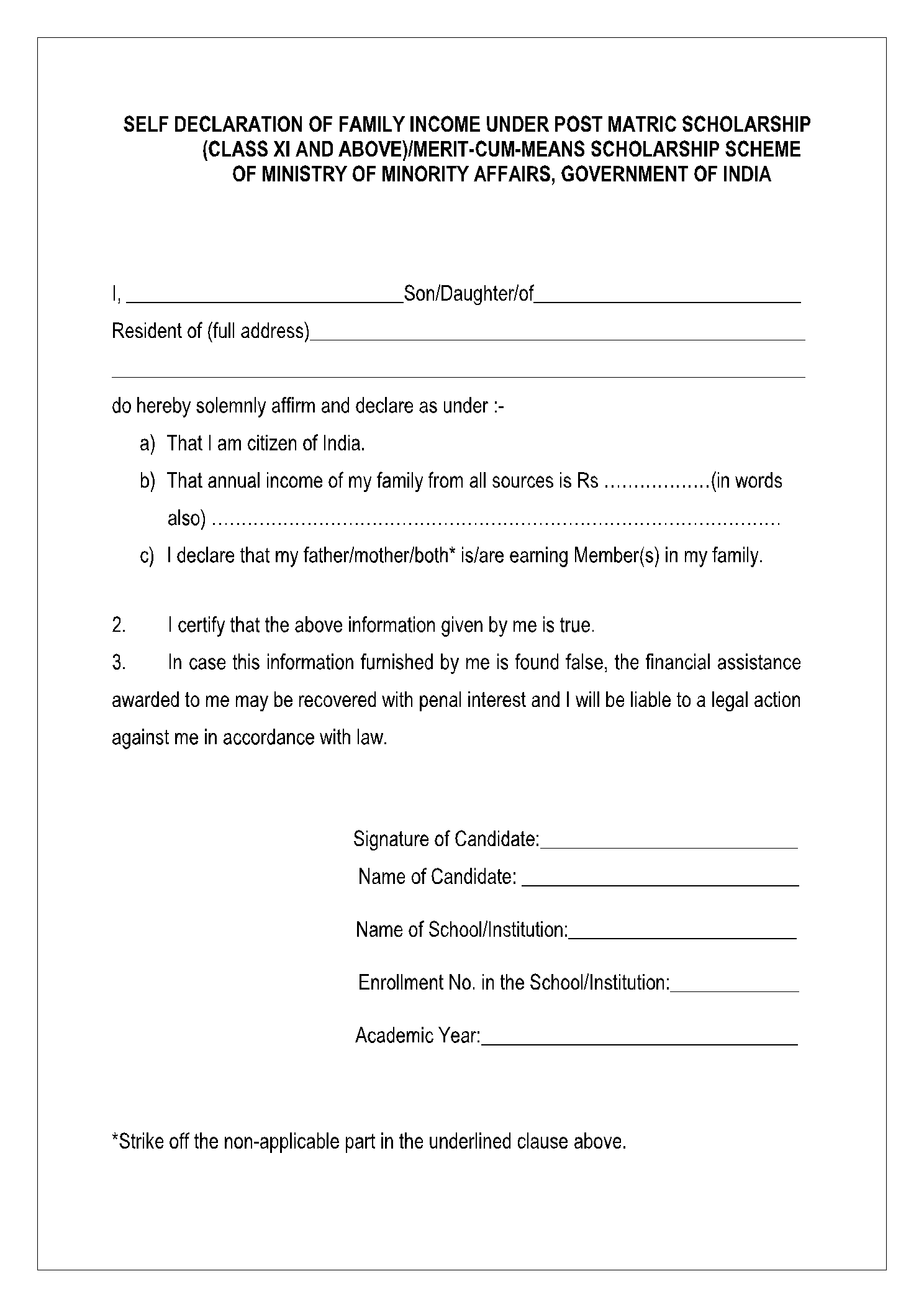What Is a Self-declaration Form?
A self-declaration form is a legal or formal document you fill out to declare that the provided information is authentic and correct. The “self” part of this document indicates that you will fill this form as an individual without the need for any witnesses.
Also, unlike other legal documents such as real estate deeds, affidavits, or wills, a self-declaration form doesn't require notarization. This attribute allows you to quickly fill and submit this form without relying on other people to help you fill it out.
A self-declaration form can be an individual document or part of other declaration forms. The difference between declarations and self-declarations is that the latter only requires you to provide your information, and other people don't need to fill it.
What Information Should Be Included In A Self-Declaration Form?
Like any other document, the self-declaration form has various features. Here are critical parts of information that should appear on this form.
1. The title
The self-declaration form should have a descriptive title that states the type and, preferably, its purpose. For example, a COVID-19 self-declaration form serves as a good title for a form you fill to declare your COVID-19 status.

2. Biodata
Self-declaration forms may need you to provide specific personal information. This data may vary from one document to the other. Nonetheless, some of the biodata you may have to give include; name, gender, date of birth, contact details, educational background, and current/past occupations.
3. Self-declaration statement
It includes authentic information relating to the declaration, often in paragraph or list form. This section also consists of the "I declare..." proclamation or other similar statements that confirm that the information is accurate and within the provided context.

4. Date and signature of the respondent
A self-declaration form should have a specific section where the respondent fills in the current date and signs the document. The date helps the recipient of the declaration to know when the respondent signed it. On the other hand, the respondent's signature authorizes that the information provided is accurate.

5. Additional information
Some self-declaration forms may include separate sections where you may be required to provide additional information. For example, when providing contact details, you may be asked to give specific directions to your residence.
What Are The Uses Of A Self-Declaration Form?
1. To convey accurate communication of information
A self-declaration form helps to share information in a clear-cut and enlightening manner. Since it offers a defined situational context, only factual information gets conveyed. This way, the person giving the details and receiving them can avoid any misinformation that may lead to conflict.
2. To serve as a straightforward and yet legal way of exchanging information
A Self-declaration document provides a straightforward way to exchange information by providing specific guidelines within the provisions of the law. This document serves as a legally binding document that ensures the honest sharing of personal details.
3. It serves as an authorization document
A self-declaration form outlines specific duties the respondent needs to complete an agreement/contract with the other party. This document empowers the respondent to provide information that can authorize or terminate a transaction.
4. It allows people and institutions to make informed decisions
Various people and institutions use self-declaration forms when making crucial decisions, such as hiring new staff. By looking at an applicant's declaration form, employers can decide whether that person is an ideal candidate for the job.
Who Should Fill a Self-declaration Form?
When filling self-declaration forms, you may need to provide information based on various situational factors. For instance, you can fill this form for tax, COVID-19-declaration, employment, and medical purposes. Therefore people who should fill Self-declaration forms include:
1. People filing their taxes
Nowadays, you need to prove a self-declaration form when filing taxes to declare your current tax information. Typically, you'll provide this document to the relevant tax authorities so that they can accurately calculate how much tax should pay.
Most people fill this form once per year, but this frequency may vary depending on your state and its tax laws. Your employer may also require you to present a tax self-declaration form that will help them determine the taxes they'll deduct from your salary.
When providing this self-declaration form, you'll need to give accurate information on your income, tax credits, and deductions.
2. People who travel internationally and need to declare their COVID-19 status
Since the emergence of COVID-19 numerous countries are introducing the need for people to fill out self-declaration forms confirming their COVID-19 status. In most instances, Airport agencies will require you to fill out a COVID-19 self-declaration form and attach relevant documents such as a COVID-test result or vaccination card.
When providing information for this self-declaration form, you may have to answer whether you have COVID-19 symptoms.
3. Individuals seeking employment
A prospective employer may require you to fill out a self-declaration form indicating your contact and personal information. This document may also require you to declare your past employments and any criminal records you may have.
Most of the time, you'll find that you'll need to fill this type of self-declaration form when applying for jobs offered by the federal government.
4. Individuals wishing to declare their medical status to various institutions/authorities
Various institutions and authorities may request you fill out a self-declaration form outlining your medical status when applying to join a learning course or special event.
In this self-declaration, you'll have to list down your medical history and current health status. You'll also need to deliver accurate and specific information on your health, and failing to do can expose you to several legal repercussions.
Conclusion:
A self-declaration form is a record attesting that the included information is true and accurate. Therefore, it is always important to read and understand this document before filling and signing it. This way, you can safeguard yourself from trivial mistakes caused by misinterpreting or ignoring particular details.
